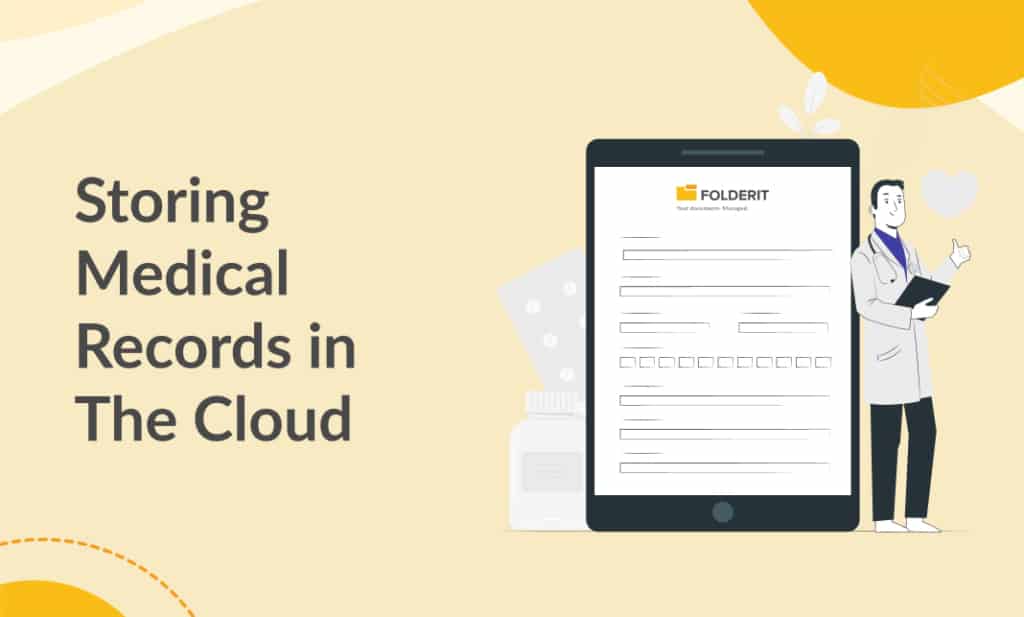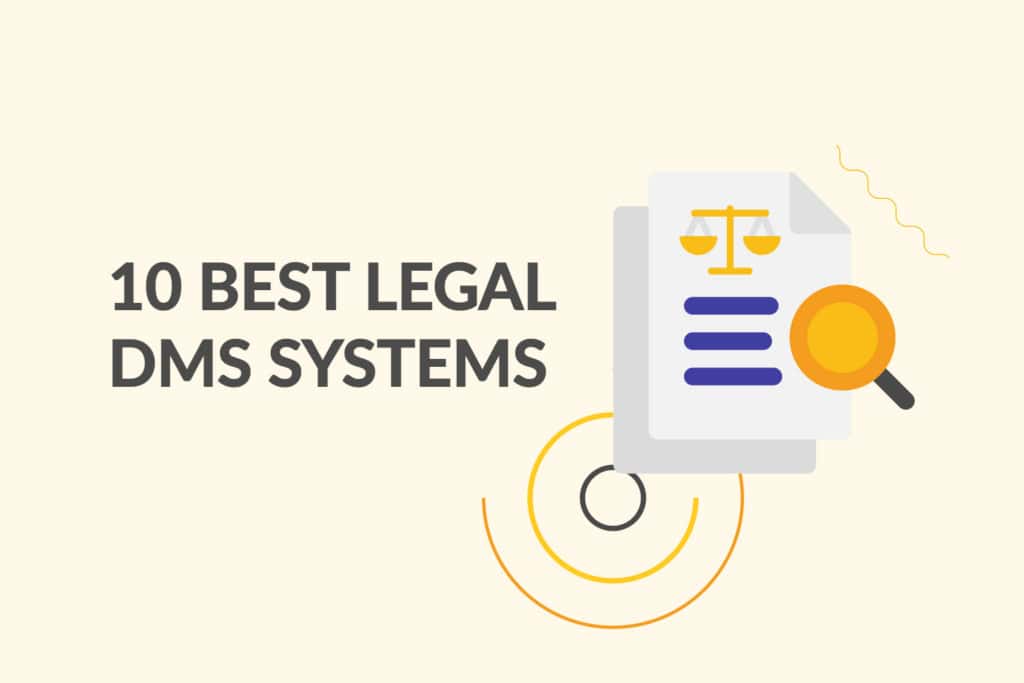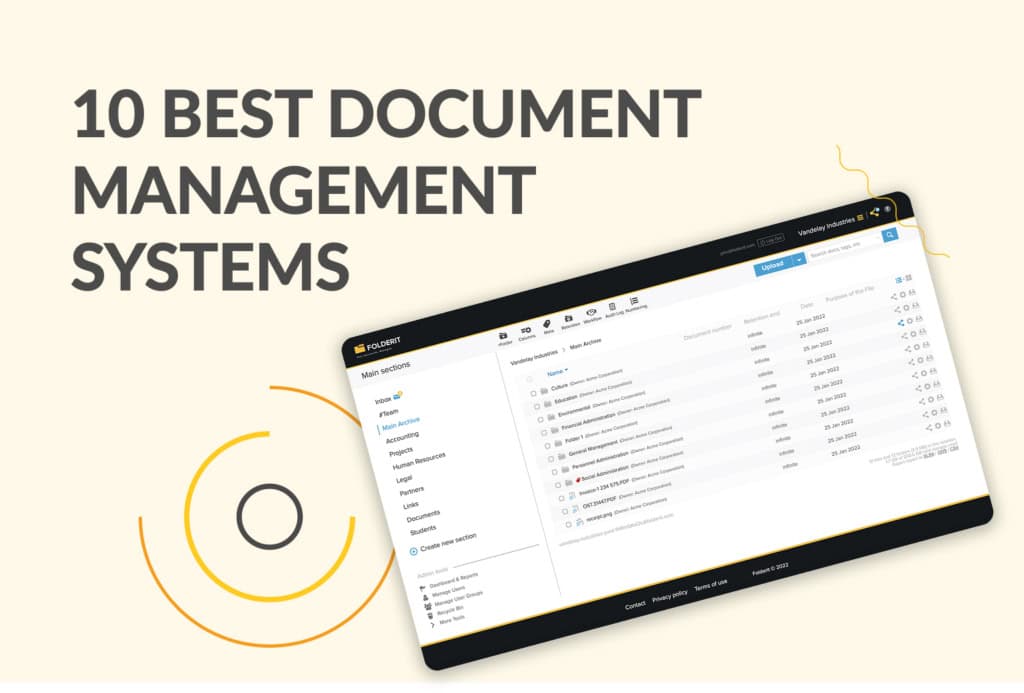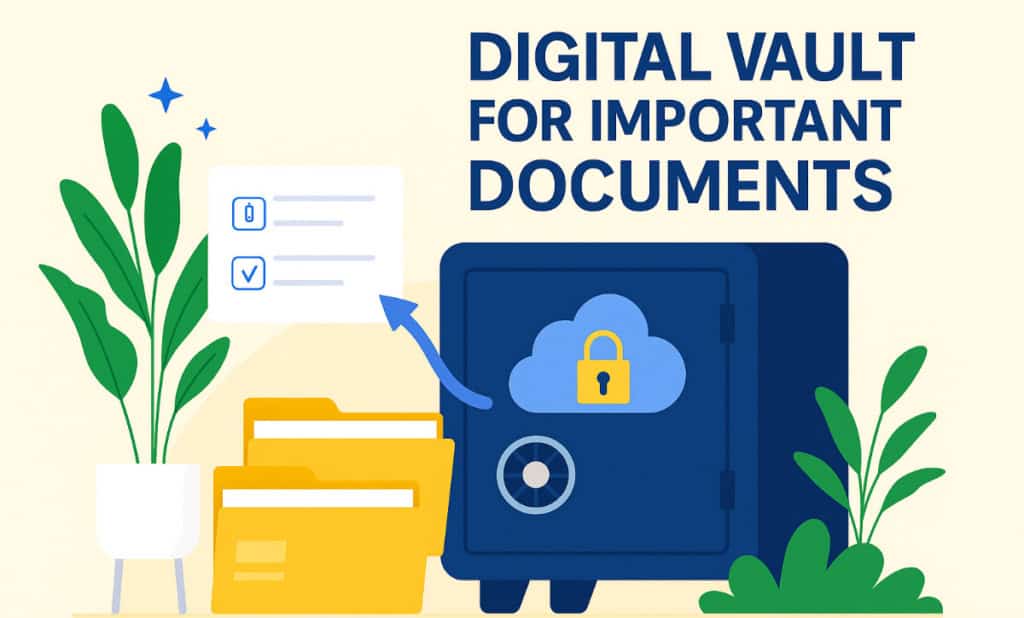According to the US Department of Health and Human Services (U.S. HIS), the 2009 Health Information Technology for Economic and Clinical Health Act (HITECH Act) outlined how healthcare providers and facilities need to ensure that no digitized information is compromised, especially patient records, this is called Protected Health Information (PHI).
This law requires that any record stored digitally must be HIPAA (Healthcare Insurance Portability and Accountability Act) compliant. In short, as technology evolves, so does its vulnerability to security breaches. To comply with these requirements, Folderit presents a great solution for storing medical records in the cloud.
A HIPAA compliant system needs to feature the following
- A system built on strong data encryption
- A system that provides administrative controls
- A system that prevents unauthorized access through permissions
- A system that monitors access
- A system that maintains and manages audit-trails
- Third-party integrations for HIPAA-compliant apps
Security for storing medical records in the cloud
The greatest risk to an online system, when properly addressed can become its greatest strength, i.e. security. Medical records might qualify as the most private form of information anyone can have. It directly ties into people’s lives, livelihoods, lifestyle preferences, financial situation, and even social standing. Suffice it to say, this is not the kind of information a healthcare facility wants leaking out into the world.
Folderit is ideal for storing medical records in the cloud securely. This is because Folderit is protected under 256-bit bank level encryption. This ascertains that nobody with unauthorized access will be allowed into the system. Everything stored is also securely backed up in triplicate, to ensure no data is lost on account of any calamity.
Any uploads, downloads, or transfers to and from the system are protected by SSL encryption, so there is no risk of unauthorized intrusion mid-transfer. This satisfies all of HIPAA’s security compliance requirements.
Administrative Controls
The heart of your Folderit operation beats inside the administrative controls section. From here you can assign roles, set password policies (also ties into the security aspect), add/remove users, create/remove user groups, edit user profiles, etc. Also, Folderit maintains audit-trails to keep track of which user accessed which file, and for how long. From here, you run your entire operation. Speaking of which, you can also set…
Permissions for Storing Medical Records in The Cloud
Even if a hospital has your medical records, it does not mean every employee on every level is supposed to have unfettered access to every patient’s medical records. Medical records are a sensitive matter and should be treated with the utmost care and respect for the patient’s privacy. HIPAA requires any solution storing medical records in the cloud to have the flexibility to grant varying levels of access to different users. Folderit does exactly that.
Some users, or user groups can be granted unlimited access, e.g. healthcare providers, or limited access, e.g. services staff who do not need the particulars of every patient, just a basic list of what each ward will need. Folderit also lets you configure certain users, or user groups such that they have view-only access to your system. For example, you can grant patients view-only access to their own information, as they have no need to edit their records.
Additionally, if someone is working on a document, you can set it up such that other collaborators are locked out of that document in the meantime.
3rd Party APIs
Folderit is flexible to the point that it can be made to adapt to any environment that you require. HIPAA compliant app integration is a very practical use-case for storing medical records in the cloud. Folderit already integrate with many scanners, and can be made to do so with just about any application. Folderit also integrated with Microsoft Office 365 for on-app collaboration (subscription to MS Office 365 to be acquired separately).
Conclusion
Folderit offers security, privacy and added functionality. You can collaborate with multiple users, manage files with metadata as well as custom metadata. It also searches using OCR to search through every record, no matter what form it may lie in.




